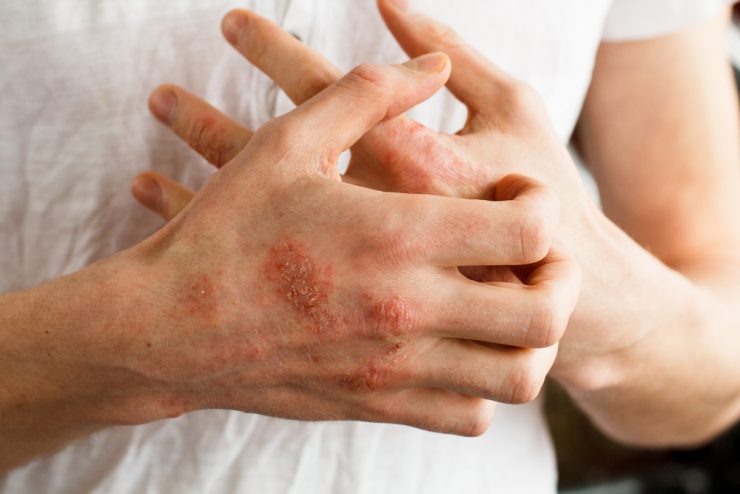Eczema is a very irritating and upsetting condition which can be hard to manage. Hydrocortisone creams and emollients may be the quickest way to relieve the inflammation and itching of eczema, but they can have side effects.
Medical herbalist Gabriella Clarke looks at some natural alternatives.
NETTLE:
Despite its nasty sting, this common garden weed is often used in herbal medicine to treat allergies, as it appears to reduce the levels of histamine in the body. It also inhibits several inflammatory events in the body. The majority of research is on seasonal allergies and allergic rhinitis but as the allergic response in the body follows the same mechanisms, it is useful for all types of allergy including eczema[i]. Nettle can be drunk as a tea but is also available in tablet and tincture form.
CALENDULA:
Calendula can be applied as a cream or an ointment to affected areas. It has a soothing and anti-inflammatory action and promotes healing. Its antibacterial properties may also help treat and prevent infections that can develop from eczema[ii].
ALOE VERA:
This pure gel is a natural medicine cabinet must. Not only is it good for cuts and burns, but it can also be applied to eczema. It works in a similar way to calendula in that is has soothing and healing properties. Aloe vera can also be used on children with eczema[iii].
BORAGE:
The oil from this pretty blue flower contains gamma linolenic acid (GLA), which has an anti-inflammatory effect. Some studies[iv] have shown that it may help to reduce symptoms in people with mild-to-moderate eczema. Evening primrose oil is also beneficial, as it shares some of the same ingredients, but studies show that borage oil contains two to three times more GLA than evening primrose oil. Borage oil is typically available in capsule form although it is also used as an ingredient in eczema and dermatitis creams.
ADAPTOGENIC HERBS:
Stress can exacerbate symptoms and the herbal remedy Rhodiola rosea can help keep stress at bay[v]. Relaxing therapies such as yoga and mindfulness may also help.
PROBIOTICS:
A healthy gut has a significant impact on health in so many ways. Bad gut bacteria may make skin problems such as eczema worse. Taking a broad-spectrum probiotic capsule daily may really help reduce eczema symptoms[vi].
NATURAL FABRICS:
Materials such as cotton and silk are gentle on the skin and let it breathe, while allowing heat and sweat to escape. Meanwhile, nylon and other synthetics can cause skin to become hot and moist encouraging the possibility of bacterial and fungal infections so are best avoided.
FOOD AND SYMPTOM DIARIES:
Many foods trigger eczema – dairy foods are a common culprit especially in babies and young children, so it is worthwhile keeping a note of what triggers your symptoms. Once you have isolated suspect foods, try eliminating them from your diet completely for at least a fortnight to see if symptoms improve.
DEAD SEA SALT:
Many people find bathing in Dead Sea salts can help soothe symptoms. Body lotions, soaps and shampoos containing Dead Sea salts are widely available.
[i] https://www.ncbi.nlm.nih.gov/pubmed/19140159
[ii] http://www.woundsresearch.com/article/9064
[iii] https://www.ncbi.nlm.nih.gov/books/NBK92765/
[iv] https://www.ncbi.nlm.nih.gov/pubmed/20579590
[v] http://www.ema.europa.eu/docs/en_GB/document_library/Herbal_-_HMPC_assessment_report/2012/05/WC500127861.pdf
[vi] https://nationaleczema.org/search-bacterial-balance/




















